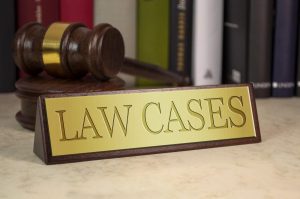What are the Common Arguments in Appellate Court Proceedings?
Appellate court proceedings hold a pivotal place within the legal framework, serving as a platform for individuals and entities to challenge lower court decisions that they find unsatisfactory. These proceedings encompass a broad spectrum of issues, ranging from criminal convictions to civil disputes.
Top federal appellate attorneys are indispensable in navigating the intricacies of appellate court arguments, ensuring that clients attain an equitable and just resolution.
In this discourse, we shall delve into the prevailing and recurrent arguments encountered in appellate court cases, underscoring the significance of adept legal representation.
Procedural Errors
Among the foremost arguments in appellate court cases lies the assertion of procedural errors. This category encompasses a range of issues, including incorrect jury instructions, mishandling of evidence, or erroneous testimony admissions.
Top federal appellate attorneys are meticulous in their scrutiny of the lower court’s procedures to detect any deviations from established legal protocols. These procedural errors may serve as decisive factors in securing a favorable appellate outcome, as they might have unjustly swayed the case’s verdict.
Insufficiency of Evidence
The argument of insufficient evidence constitutes another recurring theme in appellate court cases. Appellants contend that the lower court failed to present a substantial body of evidence to substantiate the rendered judgment or verdict.
The Best appeal attorneys undertake a thorough examination of trial records and transcripts to construct a compelling case on behalf of their clients. They may assert that the evidence presented was insufficient, unreliable, or unable to meet the legal requirement for the burden of proof.
Constitutional Infringements
Constitutional violations frequently emerge in appellate court proceedings, particularly in criminal appeals. Appellants invoke allegations that their constitutional rights were infringed upon during the trial in question.
The common constitutional arguments center on violations of the Fourth Amendment (pertaining to unlawful searches and seizures), the Fifth Amendment (addressing self-incrimination and due process) and the Sixth Amendment (concerning the right to counsel and a fair trial).
Ineffective Assistance of Counsel
The issue of ineffective assistance of counsel holds paramount importance, predominantly in criminal cases. Appellants assert that their legal representation during the original trial was subpar, resulting in an inequitable outcome.
A top appellate attorney contend that the defense counsel failed to provide proficient legal support, potentially by neglecting to summon vital witnesses or inadequately cross-examining witnesses presented by the prosecution.
Jury Misconduct
Charges of juror misconduct are a frequent contention in appellate court cases. Appellants claim that jurors were subjected to external information, engaged in case discussions before deliberations, or demonstrated bias throughout the trial.
A top appeal lawyer often conduct interviews with jurors and investigate their behavior during the trial to determine whether any misconduct transpired. Substantiated allegations of juror misconduct may lead to the overturning of a verdict or the ordering of a new trial.
Sentencing Errors
In the realm of criminal cases, sentencing errors may serve as the basis for an appeal. Appellants may posit that the lower court imposed an excessively harsh or unjust sentence. A top lawyer assess the sentencing guidelines and assert that the punishment does not correspond appropriately to the nature of the crime. Successful arguments in this sphere may culminate in reduced sentences or alternative sentencing options.
Newly Discovered Evidence
Newly discovered evidence can breathe new life into an appellate court case. Appellants may present evidence that was previously unavailable during the original trial, which they believe would significantly affect the outcome.
A top appeal lawyer must convince the court that the newly unearthed evidence is both credible and pivotal to the case, and that its introduction during the initial trial could potentially have altered the original verdict.
Errors in Jury Instructions
Jury instructions carry paramount importance in guiding jurors on the law and its application to the specific case. Appellants may contend that the lower court issued incorrect or misleading jury instructions, which could have precipitated an unjust verdict.
Experienced appellate attorneys meticulously scrutinize the instructions given to the jury and, when warranted, challenge their accuracy and impartiality to procure a more favorable outcome for their clients.
Prosecutorial Misconduct
In appellate court cases, appellants commonly level allegations of prosecutorial misconduct. This may encompass unethical conduct, concealment of evidence, or the making of improper statements during the trial that prejudiced the jury.
Experienced federal appellate attorneys undertake investigations and assemble evidence to substantiate their claims of prosecutorial misconduct, aiming to demonstrate that such misconduct exerted a substantial influence on the case’s outcome.
Concluding Remarks
In summation, appellate court cases encompass an array of arguments that offer individuals and entities an opportunity to redress perceived injustices. Top federal appellate attorneys play a pivotal role in identifying and effectively presenting these arguments, ensuring that their clients receive an equitable and just resolution.
Brownstone Law Appeal Lawyers exemplify the epitome of legal professionals who excel in the domain of appellate court advocacy. With their expertise and unwavering commitment to justice, clients can place their trust in their capable hands when seeking redress within appellate courts.






